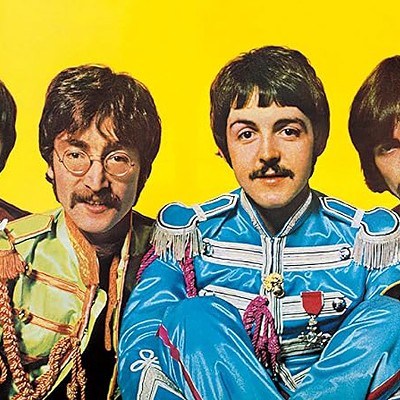Do not download Bradley Munoz's, better know as P.L.X.T.X., album Selective Mutism. In fact, don't call it an album at all, because that is in no way what it is.
Munoz's insistence on sending me a physical copy to review irked me in the digital age, but I played along because he's a nice kid who happens to frighten me a little. I'm glad he insisted, because Munoz has crafted something that can only truly be appreciated when its digital listening mode and physical medium are combined.
You open Selective Mutism, and the first thing that happens is a CD-R falls out along with a small black and white picture of Munoz. The CD-R bears a homemade sticker, and the picture is handwritten on the back encouraging you to make a copy to give to a friend. Inside the casing is the message, "Fuck Hollywood and their lobbyist."
Right off the bat, even before you've listened to a single note Selective Mutism is already laying down the ground rules of the listening experience. It gets better. Instead of credits or lyrics, the other have of the packaging is small white writing that looks like gibberish.
It's actually backwards English, and if you hold a mirror up to the text it's a confessional letter from Munoz talking about how as a child his stuttering speech impediment made him wish to be completely mute. To this day, he says he occasionally pretends to be such out and about in society.
Rewind:
The Rocks Off 100: Bradley Munoz, P.L.X.T.X.'s Noise Acolyte
That stutter, and thwarted communication in general, is the main focus of the album. Obstinately, it's an anti-war record dealing largely with the United States' drone-strike policy. The sounds of war and death serve as the preamble, with a track of synthetic missile strikes following an intro that is nothing but the phrase, "Can you see/hear me, death from above?" backmasked over and over again.
Backmasking plays a very important role in the album, and I highly recommend transferring it to your smartphone and picking up the Reverse-Player app so you can more easily decode the many hidden messages.
The bulk of Selected Mutism is typical of Munoz's approach to music. The lyrics are tonelessly shouted and endlessly repeated over an assault of harsh industrial beats and noise. Musically, it's far more melodious than his EP Time, but it remains brutal, mechanical noise that engages a listener much the same way Batman engages The Joker.
It's all a rage against oppression, the silence that death brings. As Munoz screams up at the sky in tracks like "War" and "Death Squads!" it's clear that he's expressing a repressed passion that manifests as an inability to speak normally. His lyrics reflect the anguish of people being burnt up by murder plains in their last moments of life struggling to stay alive.
Rewind:
What's the Deal With the Name P.L.X.T.X.?
But it's all deeper than that. Munoz constantly, and I mean constantly, goes out of his way to obscure an more mild method of communication. Take this poetic stanza inspired by a heroin-addicted friend that appears in the song "Toast."
I see the winding road of black tar with tunnels of many forks... I hear a slight drum beat. As I move closer, closer I get... farther the noise flee, as I gaze with a hazy daze... your eyes turn to stone... sunbeams breaks your first circle. All I have now is a mental image of what you used to be.
It's a strangely soft and sad bit of poetry that Munoz screams in his regular caterwaul, but it shows up one more time in the title track. In that instance, it's delivered by a text to speech program, though it is specifically made to painfully stutter through it on an awkward, sad reflection on being voiceless.
Later in the track, a soft, languid instrumental that mirrors the missiles of "Target Locked" underscores another backmasking. Played backwards, as you absolutely should, it reveals the only true singing Munoz does on the whole album as he repeats the "Winding Road" poem on more time.
He's never going win any awards as a vocalist, but this moment is why Selective Mutism is an interactive work of art instead of just another album. It's the absolute heart of the creation. Munoz desperately hides his own, unaltered voice after an electronic stutter and among a reversed presentation.
To even hear it you have to use machines, but that message in the poem is everything he's trying to say. It's the fear we can't articulate when a loved one crosses the line from indulgence to addiction. It's the terror of knowing you're going to die and not being able to do a damned thing about it. It's so big it can't be said aloud. It can only be felt, and you have to dig it out of Selective Mutism like a psychologist rooting out repressed sexual abuse from a patient.
The worst part? The final two tracks are hidden messages in text-to-speak encouraging listeners to contact him on Twitter, Facebook, etc. In the end, Munoz doesn't even tell us goodbye in his own voice. Just that of a machine no different than the ones that rain bombs down on terrorists and bystanders alike.
P.L.X.T.X. will appear at Map Fest on Saturday, and leaves on tour of Japan with Giant Monster Battle this July.
Follow @hprocksoff






